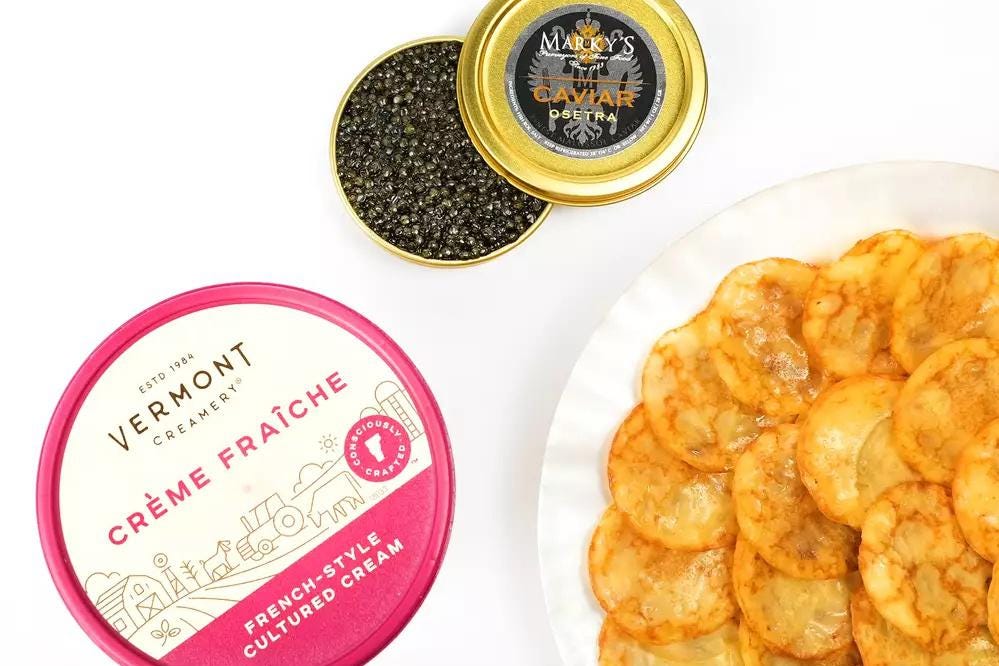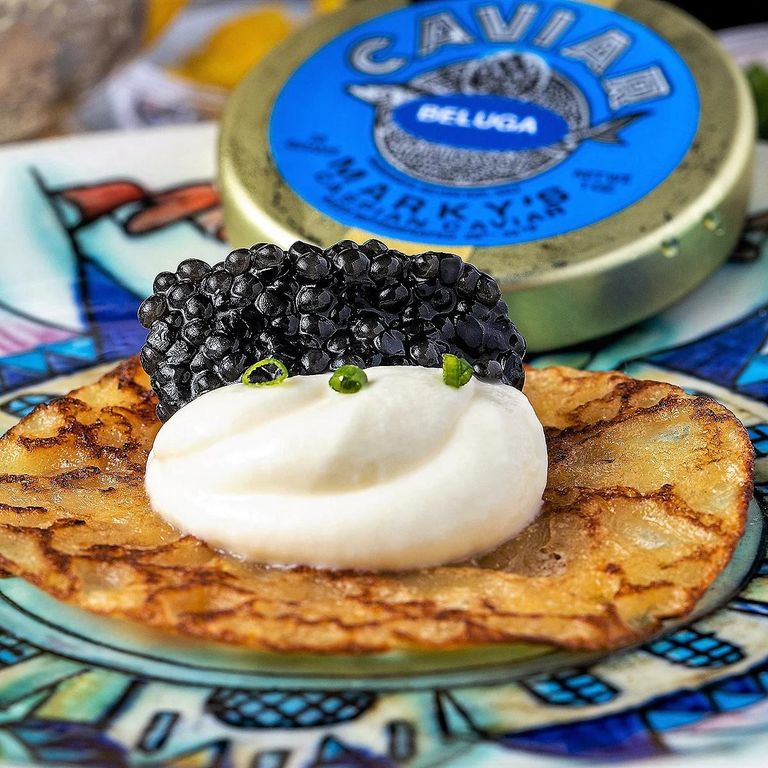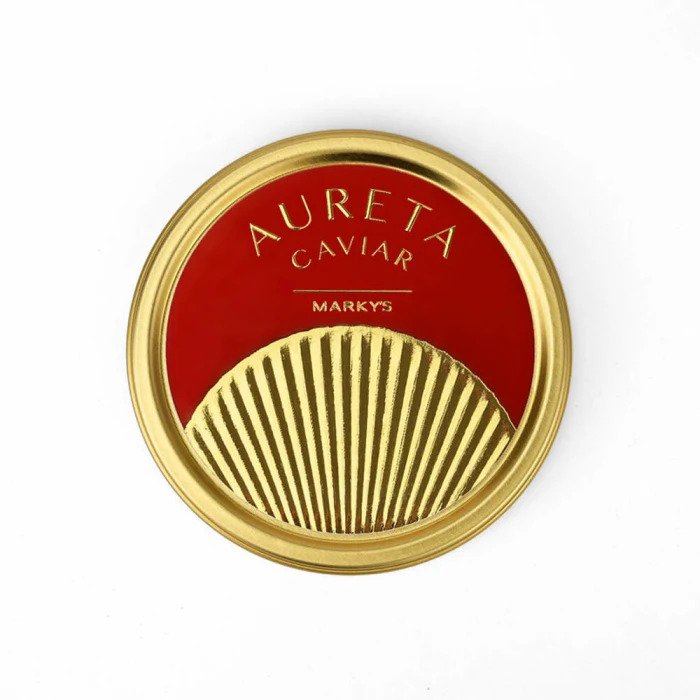Caviar dealer insists on less killing, DNA tests
Category : Food Stories, Party Ideas, Recipes, Press Room |
Posted : Mar 5, 2003
9:14 AM EST Tuesday, March 4, 2003
A Miami-based gourmet foods importer and distributor is calling itself the first caviar importer and distributor in the United States to actively contribute to the protection and preservation of wild Caspian sturgeon.

Marky's Caviar, which does business as Optimus, said it has agreed with Russian caviar producer Raskat to purchase beluga, osetra and sevruga caviar produced without killing adult female sturgeon.
The Caspian's beluga sturgeon population has dropped nearly 90 percent in the last two decades. Researchers have attributed the decrease to environmental degradation, invasion by exotic species and overfishing.
Marky's Caviar said the decline prompted it to put controls on its caviar production and processing, which the company said will protect and preserve the world's resources of sturgeon.
According to its agreement with the Russian company, Marky's Caviar said this year, 100 percent of its beluga caviar will be produced without killing the fish. In 2004, the company said the agreement will be expanded to include 90 percent for osetra caviar. In 2005, the company said the agreement will include limits on killing adult fish to obtain sevruga caviar.
"The adult sturgeon that produce caviar will be tagged and released back into the wild, where their post-surgical adaptation and migration patterns will be studied," the company said. "The agreement also ensures that there is a compensatory release of sturgeon fry into the Caspian Sea in order to replenish the declining stocks of sturgeon.
Mark Zaslavsky, Marky's Caviar president, said the people at his company see themselves as a pioneers in developing solutions to sturgeon sustainability and restoration. Mark Gelman, Marky's Caviar vice president and co-founder, indicated the accountability of an agreement will also help the business show its customers it's serious about the cause.
"Our customers will have proof that our product has been obtained in a legal and ecologically sound manner and will know that they are supporting the sturgeon conservation efforts in the Caspian region," Gelman said.
Marky's Caviar also claimed to be the first company to require DNA tests for each species of caviar. The company said the DNA analysis of the roe of beluga, osetra and sevruga caviar will allow it to ensure the origin and quality of its product to customers.
To make sure its Russian partner follows through, Marky's Caviar said its agreement requires Raskat to provide specific documentation, tracing the entire caviar production process.
"This includes approval of fishing quotas for the season by the Russian federal government, distribution of quotas among Russian fishing companies, fishing licenses and permits issued to caviar distributors, reports from fish processing plans, export permits, reports on caviar storage and transportation, and quality control inspection reports upon arrival of the caviar to the U.S.," Marky's Caviar said.
Yevgeny Aptekar, Raskat chief executive officer, indicated his cooperation won't be a problem.
"The sturgeon population has depleted significantly from habitat destruction and over fishing, and we're extremely excited to provide a solution to this problem," he said.
Mark Berrigan, bureau chief of the Bureau of Aquaculture Development's division of aquaculture for the Florida Department of Agriculture, also cheered the deal.
"We support Marky's Caviar and Raskat in their initiatives to protect and restore sturgeon in the Caspian Sea," he said. "This agreement will help to save one of the world's most precious prehistoric fish from becoming extinct."
Marky's Caviar said it will insist all future agreements with caviar and live fish suppliers comply with the same requirements as its deal with Raskat.














